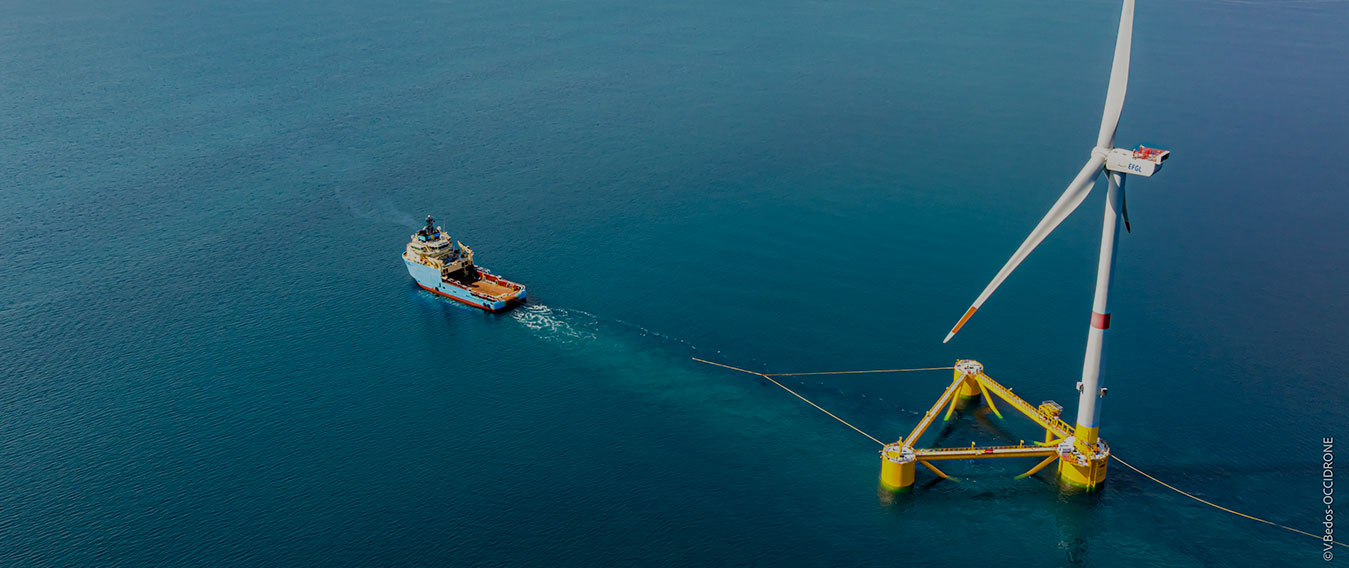In an opinion piece published in Le Figaro, a French daily newspaper, on 5 September 2025, Catherine MacGregor denounces the false figures being circulated in public debate about renewables, and reminds readers that they generate more revenue than they cost.

Renewable energy brings in far more than it costs, contrary to the disinformation contest that dominated the summer. If you listen to the critics, renewables are useless, too expensive, and rejected by the French. This simplistic and dangerous narrative thrives even more in today’s climate of uncertainty, as our energy policy still lacks a clear course, with France’s Multi-Year Energy Program (PPE) still on hold.
This summer, the controversy crystallized around a fantasy number: 300 billion euros in supposed costs tied to renewable energy development over the next ten years. Faced with such an impressive figure, reason stalls. Yet it is based on a crude tally of unrelated investments—grids, public support, infrastructure—spread across very different timelines, some extending all the way to 2060. A serious estimate reduces this figure to about 50 billion euros over ten years, and even then, only in a low-electricity-price scenario. Because when electricity prices rise, renewables generate income for the state, as happened during the energy crisis—to the tune of €5.5 billion in just two years!
No, renewables are not driving bills through the roof. Wind and solar account for less than 5% of the increase in electricity bills over the past decade. Halting their development would mean giving up on phasing out fossil fuels. France’s grid operator RTE has demonstrated it clearly: reaching carbon neutrality without a massive rollout of renewables is simply impossible. Denying this reality means turning our backs on climate commitments and jeopardizing the future of coming generations.
It also means ignoring that renewables are a lever of sovereignty, competitiveness, and jobs. By reducing our dependence on imported gas and oil—often from unstable or authoritarian regimes—they strengthen our independence. Thirty-five years of renewable support (assuming they yielded nothing) would equal just one year of the national oil bill. For every French citizen, that means about 1,000 euros a year at the pump. Developing renewables is about rejecting a model of dependence which indebts and impoverishes us all.
Renewables are increasingly competitive: in ten years, the cost of solar has fallen 10-fold, wind 3-fold. They help drive down wholesale energy prices, exerting a moderating effect on long-term costs. The truth is, they pay off: for every euro of public support, companies invest 6 euros in France. Even more, they create value at the heart of local communities—something rural areas know well. A single wind turbine brings in 10,000 euros a year in local tax revenue, funding tangible projects: school renovations, church roofs, public facilities. They generate local jobs (50,000 direct jobs), durable and non-offshorable, fueling the reindustrialization of the country. And the idea of a moratorium would mean putting these emerging industries on pause—in other words, condemning them forever. An industrial absurdity!
For all these reasons, and contrary to what some suggest, the French know we need renewables and recognize their benefits. Let’s stop pitting energy sources against each other, because this debate is settled: according to a recent IFOP poll, people believe the country needs both nuclear and renewables for electricity production. The real question is not whether we risk producing too much electricity, but how to electrify our uses (heating, mobility, industry) to move away from fossil fuels. Transitioning from thermal to electric is the key to a sustainable energy model. To stop now would be to weaken France tomorrow.
While we waste time in sterile debates, other powers are moving forward. China and India are creating the conditions for their sovereignty and competitiveness. Closer to home, in Poland, in June 2025, 44% of electricity was generated from renewables, compared to 43% from coal, its historic power source. While awaiting nuclear’s arrival in several years—another option chosen by Polish authorities—it is renewables that are already driving the country’s decarbonization.
So let’s take our destiny back into our own hands, and bet on renewables too!

